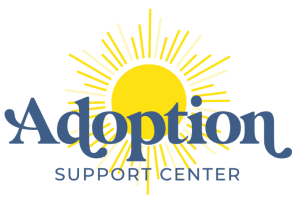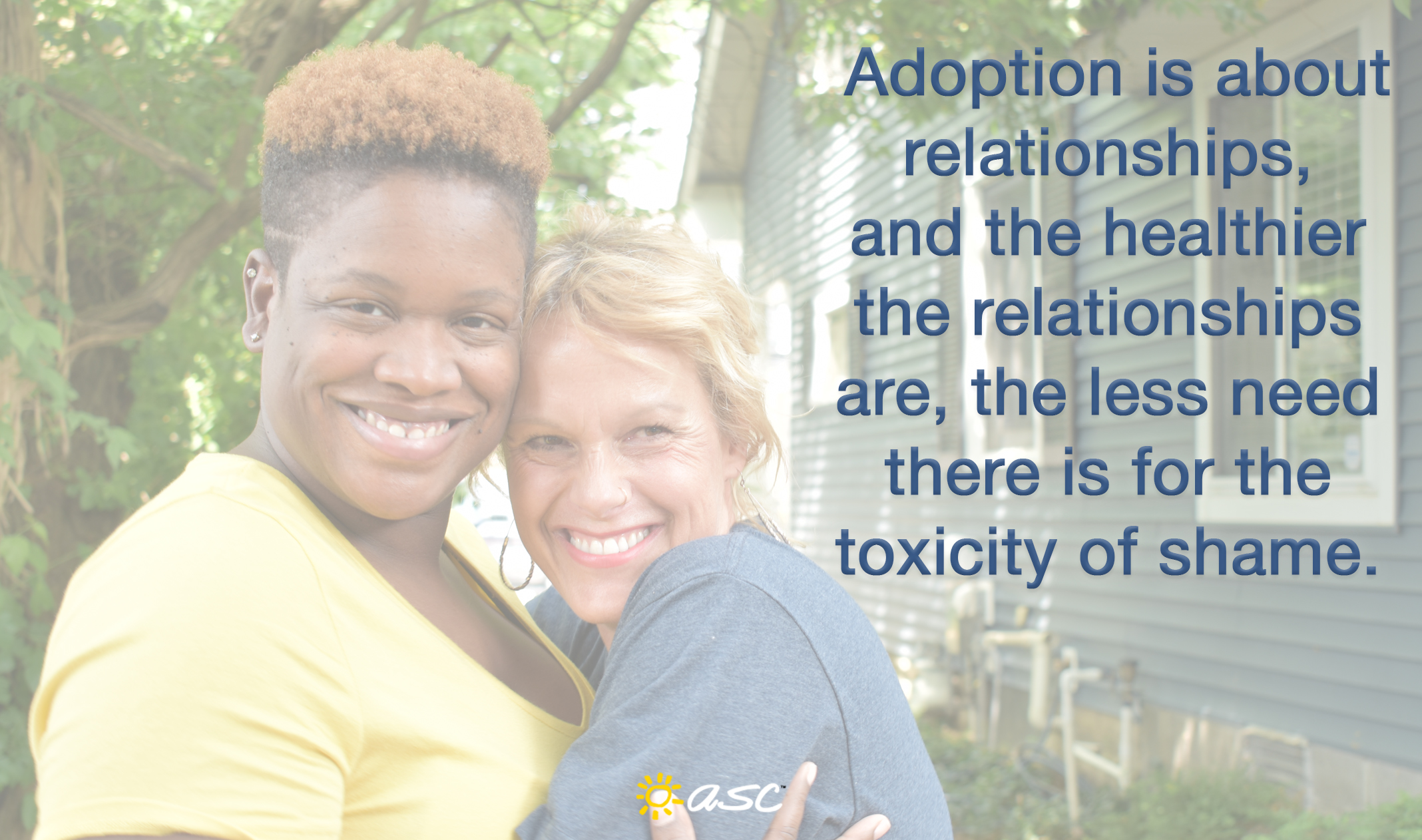Shame is hot right now. And by hot, I mean trending. Social worker/author/speaker Brene Brown has made shame a trending topic. From her TED talk to her Oprah featured best-sellers to her Netflix special, Brown is tackling the subject fearlessly.
Adoption is no stranger to the concept of shame.
Historically, adoption thrived on shame. There was the shame of infertility. Obviously, real men are able to get their wives pregnant, and real women are able to conceive and bear children. There was the shame of unexpected pregnancy. Really good girls don’t have sex outside of marriage, so they certainly can’t get pregnant. Over time, that morphed into really good girls may have sex outside of marriage, but if they give away their babies,they are inherently bad. And sadly, many adoptees have wondered if there was something intrinsically wrong with them that led to birth mothers’ decisions to place them.
You could say adoption has been a real shame storm.
“So, what’s the problem with that?” one might ask. “Doesn’t a little shame motivate people to do better?”
And that is where the misconception lies. There is a difference between shame and guilt.
Guiltis the emotion that claims, “I made a mistake.”
Shameis the emotion that insists, “I am a mistake.”
All of us make mistakes. Not a day goes by where I don’t realize I could have handled a situation differently, spoken a little more kindness into the world, or merely even made eye contact and smiled at a stranger. Some days—some situations—are more apparent where the mistakes lie, and on those days, my guilt meter perks up and reminds me to change what needs to be changed.
But making a mistake is different than believing my very existence is a mistake.
As adoption has evolved past the days of “secrecy for everyone’s best interests,” it’s stigma and power to shame have decreased. This is in no small part why adoptions are increasingly more open in terms of post placement contact. This is why adoption professionals, myself included, advocate for talking with children about adoption from the very beginning of their lives. This is why ASC advocates for our birth mothers, reminding the world that strong women make brave choices.
Adoption is about relationships. And shame has no place in adoption. Adoption is about relationships, and the healthier the relationships are, the less need there is for the toxicity of shame.



